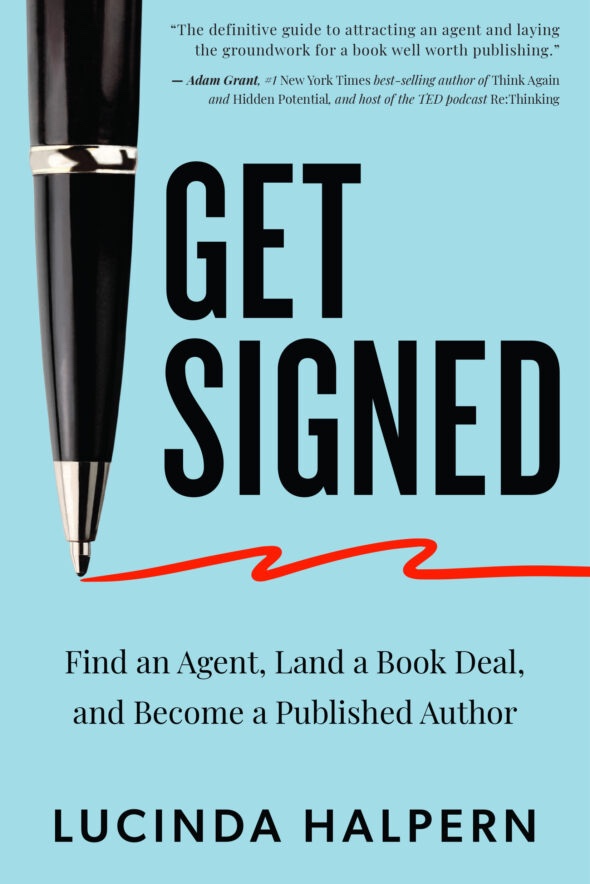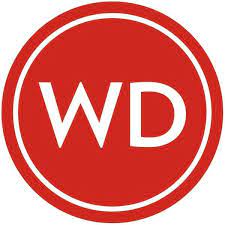Search
How Writers Can Market Themselves to Agents
Lucinda Halpern shared her latest publishing insights from this month. Read on to see her latest news, and if you’d like to receive her monthly newsletter directly in your inbox, sign up here.
# # #
If you’ve been a longtime reader of the Lucinda Literary newsletter, or if you’ve read my book Get Signed, then you’ve probably already heard me talk about what I call the “3 Keys” to getting signed by a literary agent and landing a book deal: your Big Idea, your Platform, and your Writing.
Of these three keys, today I want to focus on Platform, since this continues to be a pressing and confusing topic for writers. Specifically, I’d like to demonstrate the ways in which first-time authors represented by Lucinda Literary have leveraged this key to get a book deal.
What even is a Platform? Does it matter? The short answer is yes. Platform is one of the most important components of your query package, especially if you’re a nonfiction writer. If agents and editors see that you already have a large built-in audience for your work, they are more likely to consider your project. But don’t worry! There are many ways agents and publishers evaluate a platform, and what quantifies as a platform varies with each category and genre.
First, let’s talk about the power of a digital platform. When I founded Lucinda Literary in 2011, the publishing landscape was changing, for better or for worse. Gretchen Rubin’s The Happiness Project, among other hit titles, proved to be a testament to the power of the Internet on how a writer can gather a thriving community of followers around keys one and two: their Big Idea and their Writing.
Like considering a blind date, the very first thing an agent or editor will do after reviewing your query is look you up online, so you’ll want to make sure they’ll find substantial information about you. If you’re a novelist, journalist, or memoirist, we generally want to see you’ve published your writing or works somewhere. This can include a notable third party publication or even your own Substack. If you’re a nonfiction author, we want to see the “clamoring tribe,” as my publisher friends put it, that adores your voice, your content, and your offering. We dive deep into all these concepts and tactics in our brand new Book Publishing Accelerators Workshop!
If you have nothing else, you should at least aim to create an author website (you can hire a third party or do it yourself!). Make sure your site features a bio, a way to contact you, and any information relevant to your book or idea. Yes, this even goes for brand new writers without a book deal yet!
Let’s turn to one of the biggest aspects of an online following: social media. The power of social media is that it provides a portal between authors and readers, allowing for constant dialogue. And it can work as living proof to publishers on how poised authors are in marketing their work well. After all, publishing is a business and publishers want to limit their financial risk.
My client Paul Jarvis tapped in early to online courses, amassing a large e-mail list and Twitter following. He could ask anything of his audience and receive meaningful answers—he could essentially research ideas to include in his writing in real-time, plus grow his audience all at once! His book proposal for Company of One sold at auction to a major publishing house and continues to win international deals and royalties nearly a decade later, proving that his global fan base came ready to buy his book.
Here’s another client example: Nicole McNichols, PhD. What’s notable about Nicole is that when she first queried me with a very cool idea about how we need a better understanding of sex and its role in our society, I told her I loved the idea but she needed a bigger platform before we would be able to sell it to a publisher. She took a year and did just that. By the time we sold her proposal, she had amassed over 110 thousand followers on TikTok. We were able to sell her book in a six-figure deal to Simon & Schuster, in a bidding war.
Just as Paul and Nicole had done, as an agent, I love to see an author’s proof of concept—or proof that their work is deeply resonating with a significant following—elsewhere, even before they work on their writing! Though Substacks or email newsletters are an amazing way to showcase long-form writing as well as your writer’s voice.
Your online presence isn’t the only way to showcase your Platform. Another important facet of Platform is credentials, such as an advanced degree, bylines in notable publications, or relevant teaching affiliations and graduate work. In other words, the less work an agent has to do to prove your qualifications to write a book, the better.
For example, Lucinda Literary client Rebecca Heiss, PhD was a professor and scientist who queried me about a book about the “blind spots” we encounter in the working world due to our “stone age” brains struggling to rewire to our corporate environment. Her book began as a collection of her most popular keynotes translated into prose, incorporating humor and personal stories to make them sound less academic. Rebecca’s smart Big Idea and credentials to support her argument convinced me and publishers to take her on despite a nascent social media presence. Her book Instinct: Rewire Your Brain with Science-Backed Solutions to Increase Productivity and Achieve Success came out in 2021.
For writers of practical nonfiction and memoir, while an engaged social media following will grab an agent’s attention, so will:
- major media attention
- regular teaching or speaking engagements
- leading or working for a “big name” company
- having a network of authors or thought leaders who are ready to endorse your work
If you’re a fiction writer, while the quality of your writing will ultimately be the deciding factor for publishers, there are ways that you can elevate your own platform that will stand out to agents in a query letter:
- an MFA from a reputable institution
- a viral short story or opinion piece
- tutelage by—or connections to—notable authors who are willing to endorse your book
Building a platform can be daunting, especially if you have a career, a family, or other responsibilities to juggle. But there are several ways you can build your growing platform one day at a time, and if you’re looking for more individualized, personal guidance—whether you’re self-publishing, already have a book deal, or are querying agents— I’d be thrilled to share more guidance for your journey as I now personally offer Book Marketing Consultations!
I also invite you to check out our on-demand Book Marketing Course.
Stay strong and stay motivated as you focus on the social channel or other avenue where your audience lives and where you feel most comfortable. It’s my honor to guide you in this process. And I try to offer free tips whenever possible on my LinkedIn and on Lucinda Literary’s Instagram, so make sure to follow me there 🙂
To subscribe to Lucinda Literary’s monthly newsletter, click here.
Buy the Get Signed Book








